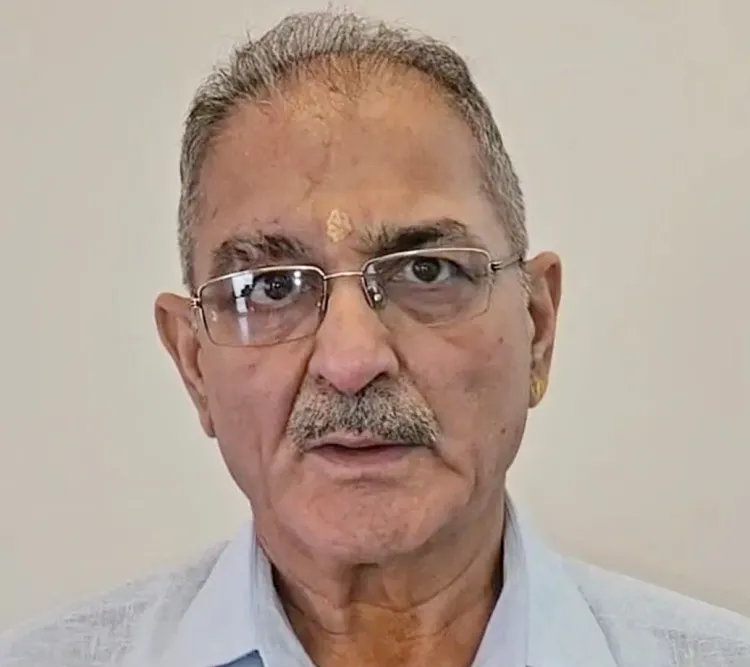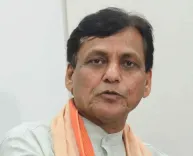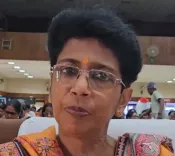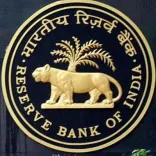Is BJP's Kavinder Gupta Right to Support Rajnath Singh's Decision on the SCO Joint Statement?

Synopsis
Key Takeaways
- Rajnath Singh's refusal to sign the joint statement signifies India's commitment to its national interests.
- The omission of the Pahalgam terror attack in the joint statement raised concerns about India's stance on terrorism.
- Kavinder Gupta's support indicates strong backing from BJP leaders on this issue.
- China's influence in the SCO meeting reflects its complex relationship with Pakistan.
- India's zero-tolerance policy on terrorism remains firm, affecting future dialogues with Pakistan.
Jammu, June 26 (NationPress) In a decisive demonstration of strategic clarity, Defence Minister Rajnath Singh on Thursday opted not to endorse a joint statement at the Shanghai Cooperation Organisation (SCO) Defence Ministers’ assembly in Qingdao, China. This decision was met with approval as a “very good step” by senior BJP figure and former Jammu and Kashmir (J&K) Deputy Chief Minister Kavinder Gupta.
The joint statement notably excluded any mention of the appalling Pahalgam terror attack in J&K, while including phrases that might dilute India’s strong position against terrorism. It controversially referenced militant activities in Balochistan, a longstanding accusation from Pakistan against India, which New Delhi has vigorously denied.
In an interview with IANS, Kavinder Gupta praised the Defence Minister’s choice, emphasizing its necessity in upholding India's integrity on terrorism.
“These summits aim to promote cooperation and address mutual concerns. However, when a nation like Pakistan persistently exploits these forums to advance its terrorist agenda, engagement becomes pointless. The Defence Minister’s refusal to sign a diluted statement exemplifies strength and clarity. Thanks to India's expanding diplomatic influence, we are being acknowledged globally,” Gupta remarked to IANS.
Expressing his dismay over the absence of terrorism discussions at the SCO meeting, Gupta criticized China for its support of Pakistan.
“China openly backs Pakistan and acts on its behalf. With significant financial investments there, it is now bound to support Islamabad. However, India will not tolerate this duplicity. If there is no mention of terrorism in a platform like the SCO, what is the purpose of dialogue?” he added.
The meeting also marked the initial in-person interaction between Indian and Pakistani defence ministers after the Pahalgam terror attack and India’s subsequent launch of Operation Sindoor on May 7. Sources indicated a notable chill, with no pleasantries exchanged between Rajnath Singh and his Pakistani counterpart, Khawaja Asif.
Referring to this tense atmosphere, Gupta stated: “We acted decisively on May 6–7, yet Pakistan shows no signs of reform. India has made it clear—there will be no discussions until terrorism is completely eliminated. The responsibility lies with them now.”
When questioned about the possibility of Pakistan distancing itself from terrorism, Gupta remained skeptical yet resolute.
“Terrorism has become a compulsion for Pakistan. We are unsure which nations influence them, but they should understand one fact—India does not yield to pressure. We are self-sufficient and will respond decisively to anyone conspiring against us,” he concluded.
Meanwhile, Defence Minister Rajnath Singh’s refusal to endorse the joint communiqué is perceived as a robust assertion of India’s strategic autonomy. By dismissing a document that neglected crucial issues while accommodating contentious references, India conveyed a clear message that national interests remain uncompromised.
The SCO, which comprises ten member nations—including China, Russia, India, and Pakistan—convened to deliberate on regional peace, security, and enhanced military collaboration. However, the inability to reach a consensus on terrorism resulted in the bloc abandoning plans to issue a joint statement altogether.
While Pakistan continues to accuse India of allegedly supporting Baloch insurgents—claims that India firmly rejects—New Delhi has vocally condemned Islamabad’s role in facilitating terrorism across borders, especially in Jammu and Kashmir.
Rajnath Singh, during the meeting, reaffirmed India's stance: “Peace and prosperity cannot coexist with terrorism. India maintains a firm zero-tolerance policy, and we will continue defending our nation's sovereignty by any means necessary.”





